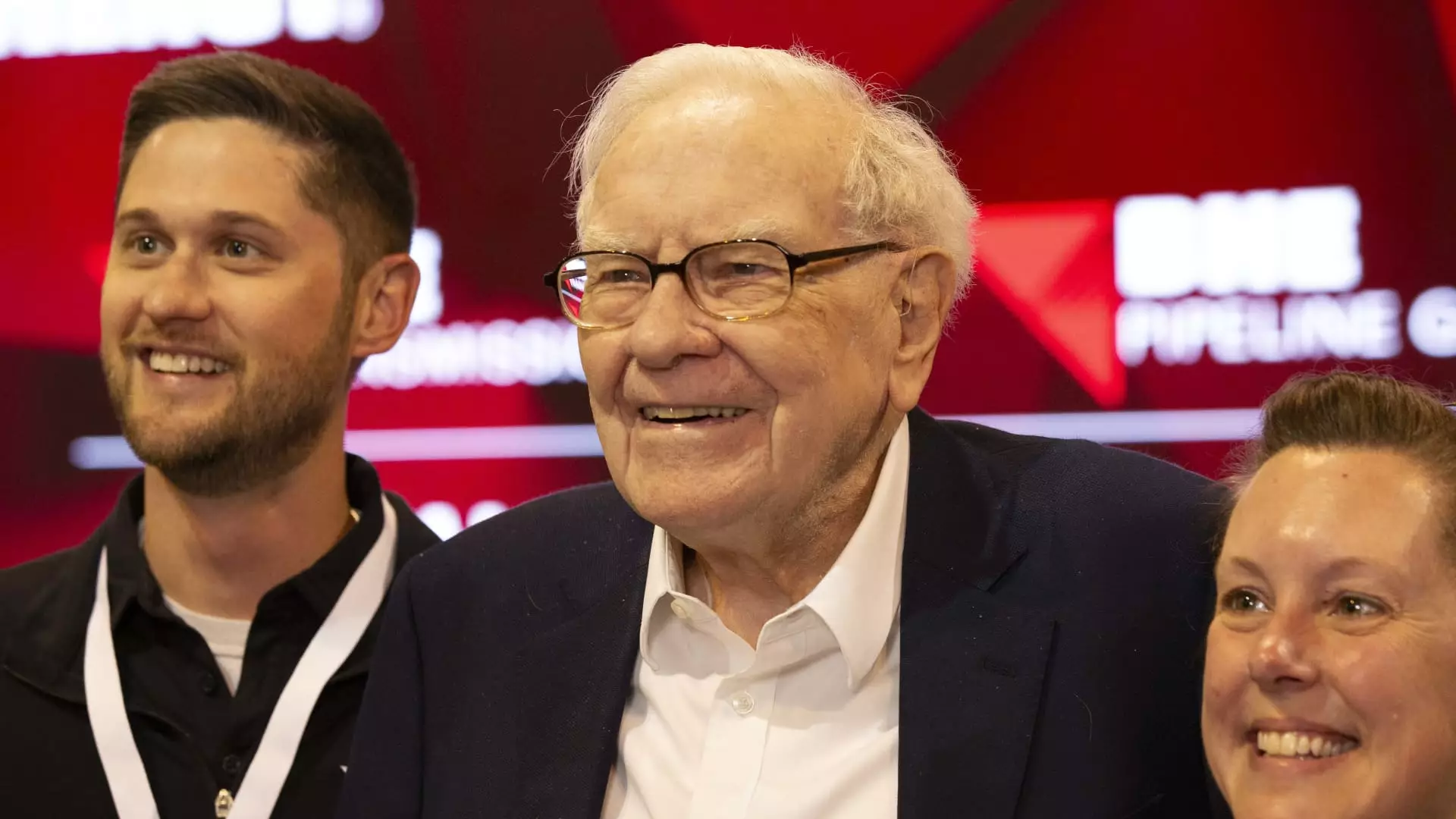As the investment world braces itself for Warren Buffett’s highly anticipated annual letter to shareholders, a swirl of market dynamics and unexpected occurrences has set the stage for a revealing discussion. The 94-year-old billionaire and revered investment mastermind, often dubbed the “Oracle of Omaha,” is preparing to provide his unique perspective on significant developments impacting Berkshire Hathaway, including a renewed trade war, catastrophic wildfires, and ongoing stock offloading from the company’s portfolio.
The devastating wildfires in California are primed to steal the spotlight during Buffett’s address. Although Berkshire Hathaway does not predominantly operate in California’s insurance markets, its extensive reinsurance sector is poised to incur substantial losses. Analysts estimate that insured losses from the recent wildfires could exceed $40 billion, marking them as potentially the costliest in American history. Industry experts, including Edward Jones’ James Shanahan, are keenly analyzing how these losses will be reflected in Berkshire’s upcoming earnings report.
Buffett’s Berkshire could experience significant exposure if it absorbs a portion of these costs. Specifically, UBS analyst Brian Meredith projected a $1 billion potential loss for Berkshire’s reinsurance segment and an additional $150 million for its primary insurance operations linked to commercial and healthcare liabilities. Furthermore, Geico, part of Berkshire’s portfolio and a key player in the auto insurance market, is expected to face claims from the wildfire damages. However, those engaged in investment management believe these impending claims will remain within manageable limits.
The trade conflicts initiated during President Trump’s administration continue to reverberate across global markets and might form a crucial topic in Buffett’s address. The implications of newly imposed tariffs—25% on goods from Mexico and Canada, coupled with a 10% tax on Chinese imports—could have ripple effects leading to inflationary pressures that ultimately burden consumers. Buffett previously expressed that tariffs serve as a tax on consumers and suggested that aggressive trade policies could yield adverse global repercussions. Such insights will be vital as investors scour Buffett’s commentary on these ongoing disputes.
Moreover, investors will closely scrutinize any discussions surrounding how tariffs are affecting Berkshire’s diverse portfolio companies. Businesses involved in materials and construction may be feeling the pinch of reduced lumber supply from Canada, among other trade-related challenges. This discourse may shed light on Buffett’s broader economic outlook and how he anticipates navigating these turbulent waters.
In recent quarters, Berkshire Hathaway has notably shifted its approach to stock investments, with Buffett offloading shares of major holdings, including Bank of America. As third-quarter reports revealed Berkshire’s cash reserves surpassing $300 billion, the conglomerate has demonstrated a trend of selling more stocks than it acquires. This raises significant questions about the company’s investment strategy.
Market analysts, such as Piper Sandler’s R. Scott Siefers, speculate that the reduction of Bank of America shares below the crucial 700 million mark—initially acquired through low-cost warrants—might indicate a deeper strategy. This shift may suggest Buffett’s perception of an overheating market where valuations are becoming increasingly inflated. Such a stance is informative, especially for investors seeking guidance from the “Oracle” on the state of the marketplace.
In tandem with navigating market challenges, Buffett’s recent decision-making reflects a strategic approach to ensure a seamless leadership transition to his eventual successor, Greg Abel. Over the past year, Berkshire Hathaway has finalized significant acquisitions, such as fully acquiring Berkshire Hathaway Energy, previously held in part by the Scott family. Additionally, the company has taken steps to acquire the remaining interest in Pilot Travel Centers, culminating in a settling of long-standing litigation.
These actions may depict Buffett’s wider intention to consolidate Berkshire’s assets and establish a robust platform for his successor. Analysts like Shanahan suggest this deliberate groundwork indicates Buffett’s commitment to securing the company’s legacy while positioning it for continued success under new leadership.
As Warren Buffett prepares to deliver his annual letter to shareholders, the confluence of environmental challenges, trade issues, and shifting investment strategies merits deep consideration. The insights he shares will not only influence how investors perceive Berkshire Hathaway but also highlight broader economic implications. With a balanced focus on immediate challenges and long-term strategies, the Oracle of Omaha is expected to provide wisdom that continues to guide countless stakeholders, proving that even in times of turmoil, thoughtful leadership prevails.

